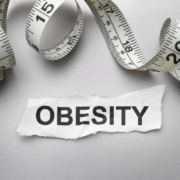FAA evacuation tests could give green light to unsafe and inhumane airline seating
October 21, 2019
Media contact: National Consumers League – Carol McKay, carolm@nclnet.org, (412) 945-3242 or Taun Sterling, tauns@nclnet.org, (202) 207-2832
Washington, DC—The Federal Aviation Administration’s (FAA) upcoming passenger evacuation tests are designed with outdated standards that do not reflect the realities of today’s airline travel marketplace, said a coalition of ten consumer and flyers rights organizations in a letter sent today to FAA Administrator Steve Dickson and Department of Transportation (DOT) Secretary Elaine Chao.
The groups’ letter explains how the FAA’s current evacuation testing standards, which have not been updated in more than 20 years, do not account for multiple factors that could prevent safe evacuation in the legally-required 90-second threshold. For example, the current standards do not account for the presence of emotional support animals in the cabin, parents who may be separated from their children due to airlines’ family seating policies, or passengers with disabilities. In addition, the current evacuation standards do not account for the experience in recent emergencies of significant numbers of passengers attempting to bring personal items like roller bags with them as they evacuate. Nor do the standards effectively simulate the disruption from the widespread panic that can be expected in the event of an actual emergency.
“The FAA’s standards are woefully out of date and out of step with the current state of airline travel,” said John Breyault, vice president of public policy, telecommunications and fraud at the National Consumers League, which organized the letter. “Unless the standards are improved, the airlines will almost certainly see the results of these tests as a green light continue their never-ending quest to shrink seat sizes and cram more passengers into planes.”
In September, FAA Deputy Administrator Daniel Elwell announced that that the agency will conduct tests of airplane evacuations involving 720 “demographically representative” people over 12 days in November 2019 in Oklahoma City. These tests, the first conducted by the FAA in nearly two decades, come in response to a Congressional mandate that the agency set minimum seat size standards in order to increase passenger safety. Unfortunately, the FAA appears to be pressing forward with the testing without input from the DOT’s Office of Inspector General, which is currently conducting an audit of evacuation testing standards, or the agency’s own emergency evacuation standards advisory committee. Furthermore, it appears the testing will not be conducted with full-scale airplane cabin mock-ups, but instead using smaller sections that don’t properly simulate packed airplanes.
“It is imperative that Secretary Chao and Administrator Dickson act aggressively to address our organizations’ concerns so that the public, whose faith in the FAA has been significantly diminished recently, will have confidence that the highest of standards were employed during the test evacuations,” said Business Travel Coalition chairman Kevin Mitchell. “Congress also needs to ensure that the testing processes and the underlying critical assumptions are realistic,” added Mitchell.
“Airline travel has changed significantly over the last 20 years, with shrinking seats and record passenger loads, a high influx of carry-on bags, scattered seating of families, ubiquitous electronic gadgets and cords and even on-board animals,” said William J. McGee, Aviation Adviser for Consumer Reports. “It is critical that the FAA’s methodology changes as well, so that this vital testing accurately reflects real-world scenarios, where the stakes are often life-and-death.”
The letter was signed by the National Consumers League, Business Travel Coalition, Consumer Action, Consumer Federation of America, Consumer Reports, EdOnTravel.com, FlyersRights.org, Travel Fairness Now, Travelers United and U.S. Public Interest Research Group Education Fund.
###
About the National Consumers League
The National Consumers League, founded in 1899, is America’s pioneer consumer organization. Our mission is to protect and promote social and economic justice for consumers and workers in the United States and abroad. For more information, visit www.nclnet.org.



















